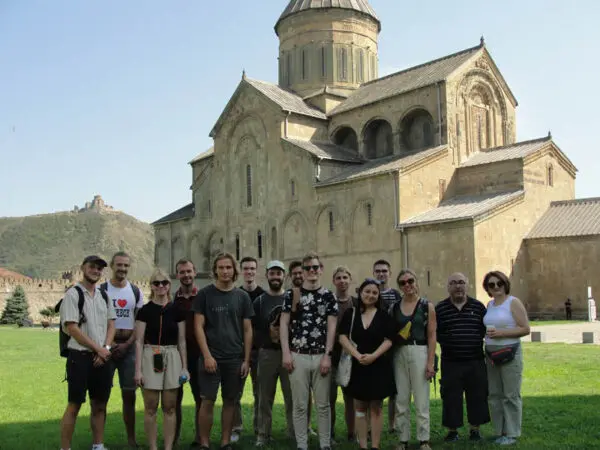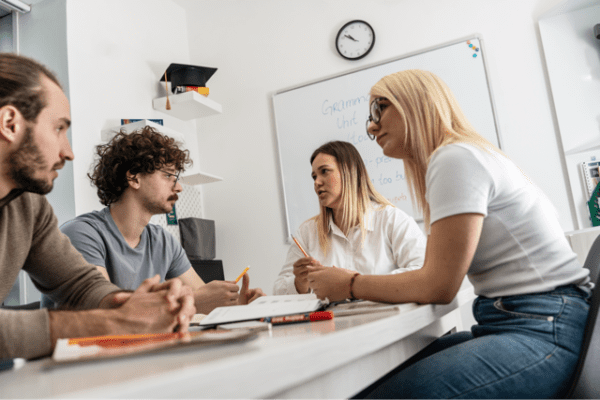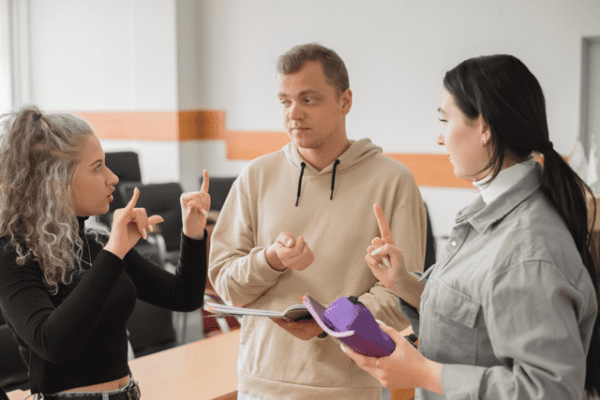
Tbilisi, Georgia
Russian Language Summer School in Tbilisi (2nd Group)
When:
03 August - 21 August 2026
Credits:
4 EC
Read more
Linguistics
When:
03 July - 07 July 2023
School:
University of Groningen Summer Schools
Institution:
University of Groningen
City:
Country:
Credits:
5 EC
Fee:
150 EUR

Heritage is a hallmark attributed in an interplay of forces involving a diversity of interests and emotions. It is not a given, it comes about whenever it is advanced, rooting in a desire for collectivity and continuity. People turn things into heritage by labelling them – looking to the future with reference to the past. This selection process does not take place without a struggle, and the result is in no way neutral.
Cultural heritage – both tangible and intangible – is often used to define who does and who does not belong to certain groups and communities. The mediation of and participation in a culture’s living traditions is often important for constructing personal and collective identities; but by its very nature, it does not facilitate inclusivity. Confronted with this uneasy relation between cultural heritage, identity and inclusivity, we take a step back to reflect. What does a more inclusive mediation of cultural heritage look like? How do minorities use their cultural heritage to stay connected with an identity that does not belong to the majority culture they are surrounded by? How does cultural heritage both divide and connect groups and cultures? How can we research and interact with these dynamics?
In this summer school we will ask these questions while looking at diverse cultural heritage practices, ranging from cuisines to heritage languages; from tangible objects and buildings to intangible traditions and practices. Scholars and professionals from diverse fields, such as critical heritage and tourism studies, cultural studies, sociolinguistics, and media studies will give lectures and workshops during an intense, five day long programme.
The school will include an international symposium on the findings of Re:voice, a European research project on three indigenous cultures: Cornish, Frisian, and Livonian. Members of this project will discuss how intangible cultural heritage is mediated in live cultural events in these cultures, and what the role of minority languages is in such events.
Prof. Dr. Joana Duarte Dr. S.J. Moenandar Dr. Matt Coler Marit van Dijk, MA
The summer school is designed for those interested in diversity management and social justice. It is a Graduate School, and participants can expect high quality academic debates, rooted in empirical research. The school is thus designed for:
MA students and PhD students
Early-career researchers
Teachers, policy makers, managers and other professionals with an interest in the topic.
At the end of the summer school, the participant is able to:
1. Assess current debates about the intertwinement of heritage, identity and inclusivity.
2. Analyse how heritage mediation is both an expression of, and facilitates, identity formation
3. Appraise a wide array of theories on heritage mediation, and how this relates to issues of inclusivity
4. Argue for the relevance and feasibility of research projects on the intertwinement of heritage, identity and inclusivity in a way that testifies of informed critical thinking
Fee
150 EUR, For students from University of Groningen and the Reinwardt Academy
Fee
400 EUR, For others
When:
03 July - 07 July 2023
School:
University of Groningen Summer Schools
Institution:
University of Groningen
Credits:
5 EC

Tbilisi, Georgia
When:
03 August - 21 August 2026
Credits:
4 EC
Read more

Tbilisi, Georgia
When:
06 July - 24 July 2026
Credits:
8 EC
Read more

Venice, Italy
When:
29 June - 03 July 2026
Credits:
2 EC
Read more